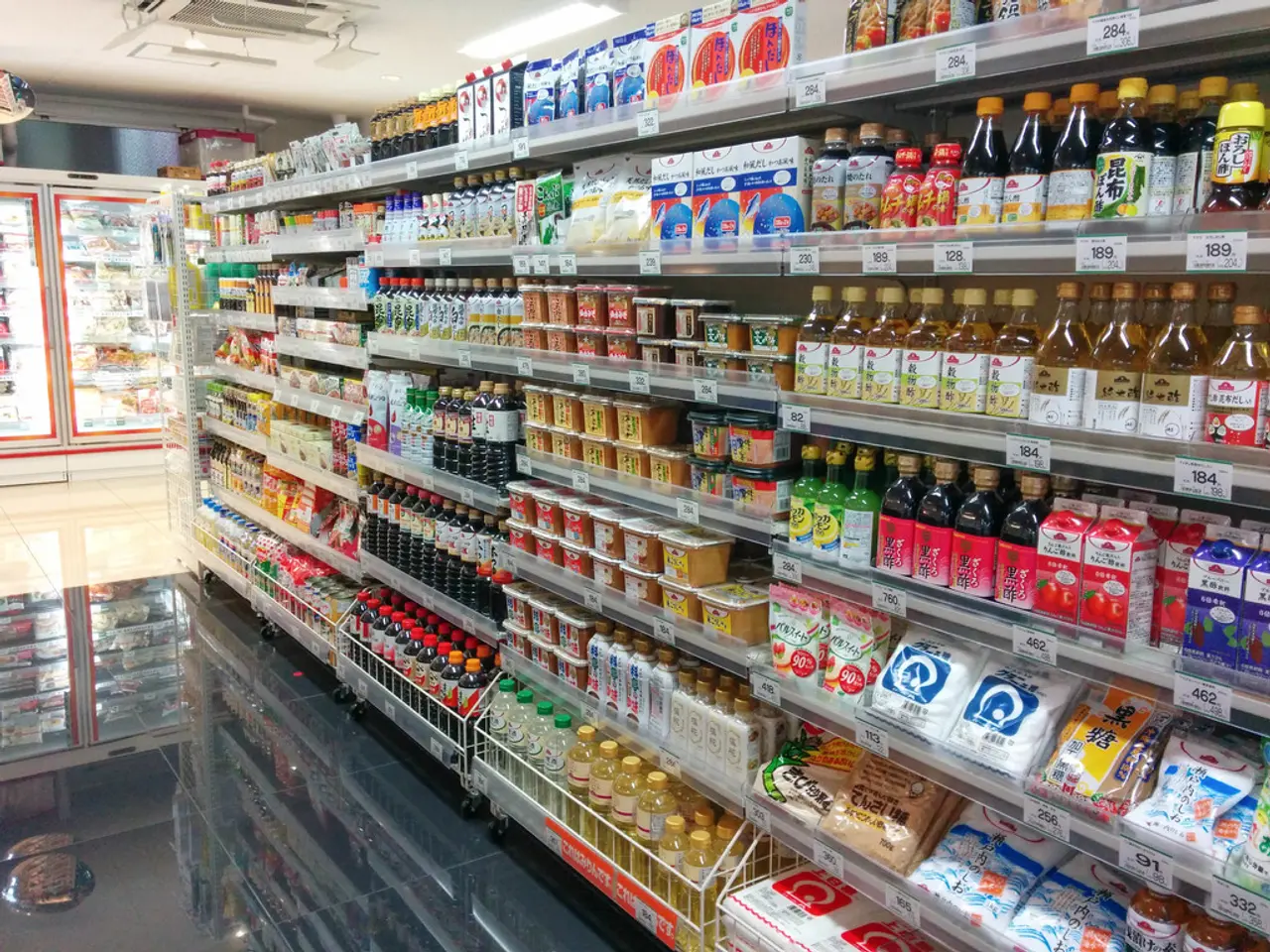Skidding Down: German Manufacturers Slash Prices Amid Energy Savings
Decreasing energy expenses: Persistently declining producer prices in Germany
Germany's industrial powerhouses have been slashing prices, with manufacturers reporting an average decrease of 1.2% in May compared to the previous year. This trend, as announced by the Federal Statistical Office, marks the third straight month of falling producer prices—the quickest decline since September 2024[2].
The primary driving force behind this downward spiral? A substantial plunge in energy costs[1][2]. Energy prices dropped a whopping 6.7% overall in May, with electricity prices dipping by 8.1%, natural gas plummeting by 7.1%, and mineral oil products sinking by 9.6%[2]. This significant energy price reduction has affected the overall producer prices, overshadowing any price increases observed in other sectors such as non-durable consumer goods, durable consumer goods, and capital goods[2].
Cyrus de la Rubia, Chief Economist at the Hamburg Commercial Bank, attributes this steep decline in producer prices to the recent geopolitical turbulence. Citing the conflict between Israel and Iran, he notes that energy prices, particularly for crude oil and natural gas, have soared since May[1]. As of now, Brent crude oil is trading approximately 25% higher than its average price in May. This upward trend is expected to translate into higher energy prices in June[1].
Despite the overall decline in producer prices, some sectors still saw price increases. Consumer and capital goods were among them, with prices for these goods rising by 1.3% compared to May 2024, when considering energy costs. However, when excluding energy prices, producer prices remained relatively stable, with a 0.2% decrease from April to May[1]. Experts had predicted a 0.3% decrease[1].
The prices for products manufactured in Germany are tracked by the statistics office before they reach the wholesale and retail markets. Lower energy prices have kept Germany'sinflation in check, with goods and services costing 2.1% more than in the prior year in May. Food prices, though, served as a prominent catalyst for inflation, jumping by 2.8% for the second consecutive month[1].
Sources: ntv.de, rts
[1] ntv.de. (n.d.). Producer prices in Germany continue to fall. Retrieved June 16, 2025, from https://www.ntv.de
[2] ab.com. (2025, June 10). German Producer Prices Decline for Third Consecutive Month. Retrieved June 16, 2025, from https://www.abc.net.au
[3] bloomberg.com. (2025, June 11). German Producer Prices Drop for Third Straight Month. Retrieved June 16, 2025, from https://www.bloomberg.com
In light of the substantial decrease in energy costs, the community, particularly the industrial sector, might consider revisiting their community policy to incorporate vocational training programs to capitalize on the improved financial landscape. This could lead to an increased focus on upskilling the workforce for long-term benefits in various sectors, including manufacturing, given the current industry trends.




